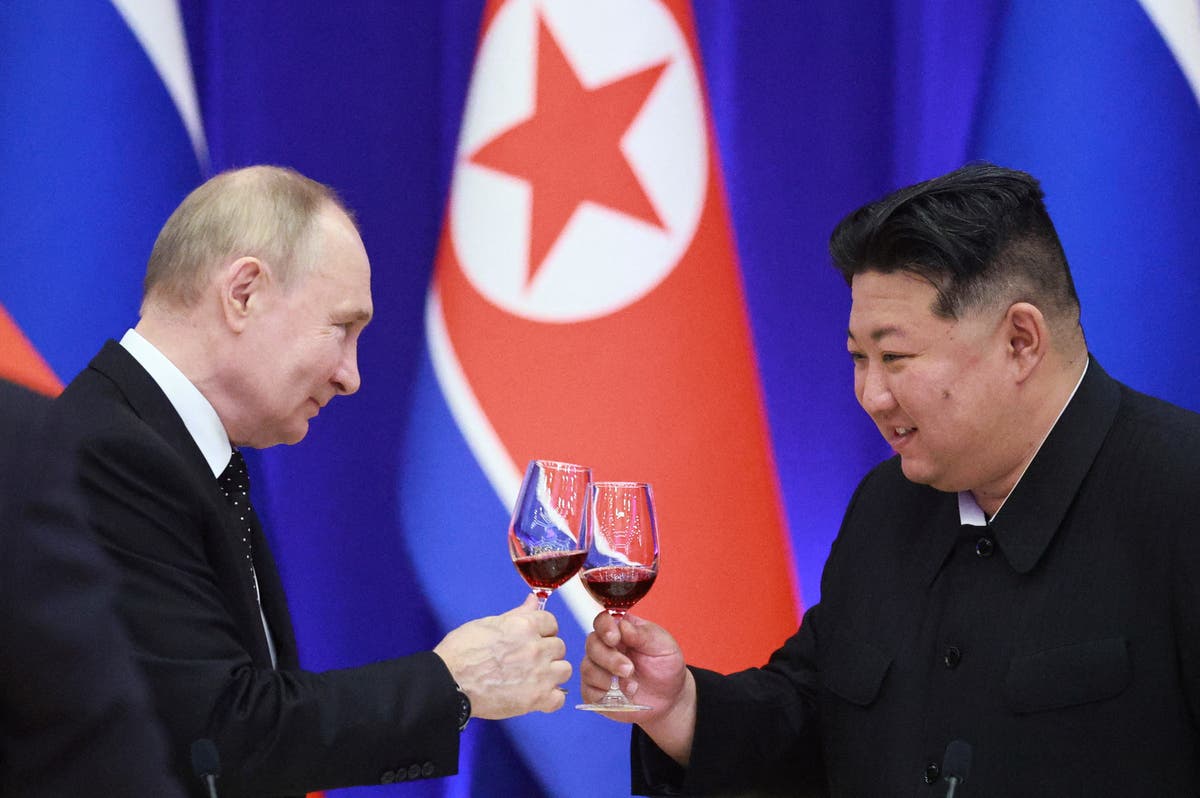It is clear what Vladimir Putin gains from thousands of North Korean troops joining Russia’s prolonged war in Ukraine. But the motivation behind Kim Jong-un sending young and inexperienced soldiers into a battle that will enter its third winter this year is less apparent.
North Korean soldiers training to fight in Europe’s biggest conflict since the Second World War have stakeholders watching to see if the so-called “blood alliance” with Russia could become one of the most lucrative projects the reclusive country has ever pursued.
Thousands of North Korean soldiers are already training in Russia for combat with the Ukrainian army alongside the Russian president’s troops as the two most heavily sanctioned and isolated regimes stepped up their friendship to an unprecedented level.
South Korea, the US, and the UK have confirmed the presence of at least 10,000 North Korean soldiers on Russian soil with most amassing near the Kursk border of Ukraine where Mr Putin’s forces have faced some of the toughest battleground challenges from Kyiv.
The South Korean intelligence agency, which first raised the alarm over the troop deployment, has confirmed at least 12,000 soldiers including generals and senior officials are in Russia now and American intelligence said they could be fighting “within days”.
It would mark the first time North Korea put its boots in an international conflict with one of the world’s largest militaries with 1.2 million soldiers.
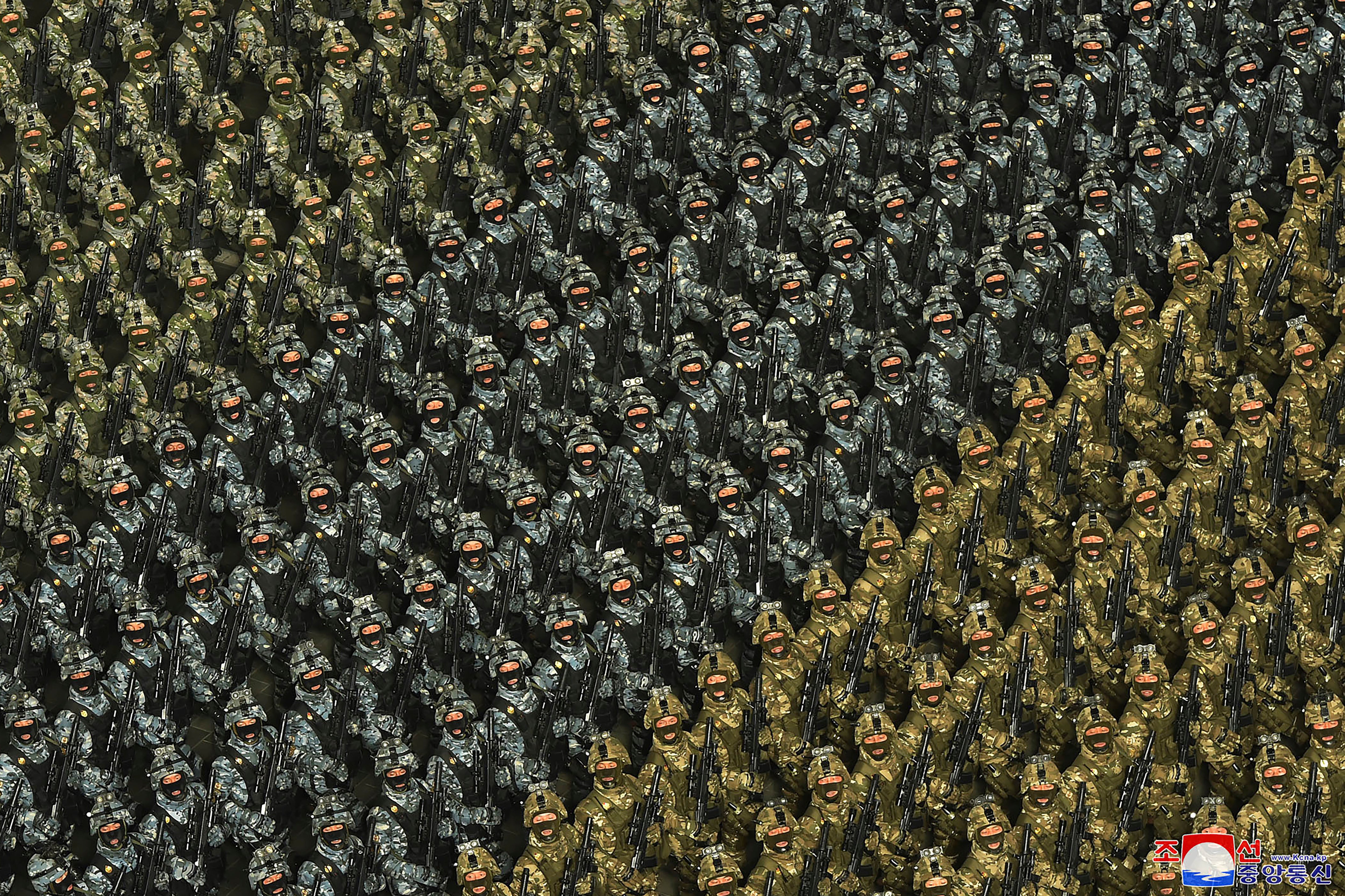
North Korea has not fought a war since 1953 when the Korean War ended in an armistice but has only been preparing for a real situation with South Korea.
It is an unprecedented move for an isolated country like North Korea to mobilise soldiers in a distant conflict on the other side of the world after decades of closely guarding the country against foreign news and even restricted movement from one province to another within the country. Its soldiers would be on unfamiliar territory, handling new weaponry and colleagues speaking a foreign language.
What’s on the table for the leader of the impoverished nation? Food, cash, and nuclear and space cooperation, experts said.
But these are more immediate and predictable benefits. The more important question is what Mr Kim is aiming to obtain from this relationship over the longer term – a dangerous escalation that could have more far-reaching consequences for Northeast Asia, analysts said.
The South Korean spy agency said last month Russia could pay at least $2,000 per month to each North Korean soldier, shelling out a total of $20m per month for 10,000 soldiers.
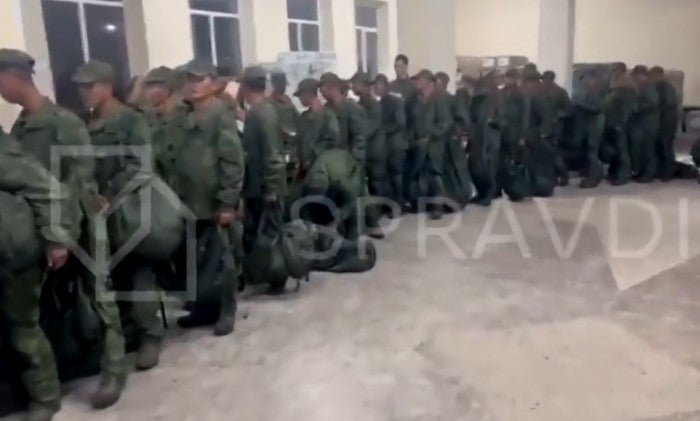
A huge percentage of their earnings – up to 95 per cent – will likely go directly to Mr Kim’s coffers, and the remaining to the soldiers, according to Lee Woong-gil, a former member of one of North Korea’s top Storm Corps units.
This means a soldier would end up earning $1,200 to $2,400 – a lucrative enough offer for many young men willing to volunteer for the risky Russian tour, former soldiers said.
North Korea has also faced acute food shortages in recent decades since a crippling famine killed an estimated hundreds of thousands in the mid-1990s. It is often exacerbated by natural disasters, including monsoon floods. A significant number of defectors said they never received government food rations in North Korea.
Wi Sung-lac, a member of the South Korean parliamentary intelligence committee, told The Korea Herald that North Korea’s grain production falls short of its needs, and that if Russia provides 600,000 to 700,000 tonnes of rice, it would cover over half of the annual shortfall.
Rachel Minyoung Lee, a senior fellow for the Stimson Center’s Korea Program and 38 North, told The Independent that North Korea’s dispatch of troops is a different level of commitment than exporting weapons, which means “Kim’s leverage over Putin has gone up”.
“This means Russia’s transfer of sensitive military technology to North Korea has become more likely than before. This would be in addition to the cash that we think North Korea is earning by sending soldiers to Russia, on top of the food and oil supplies it reportedly has been receiving from Russia already,” she said.
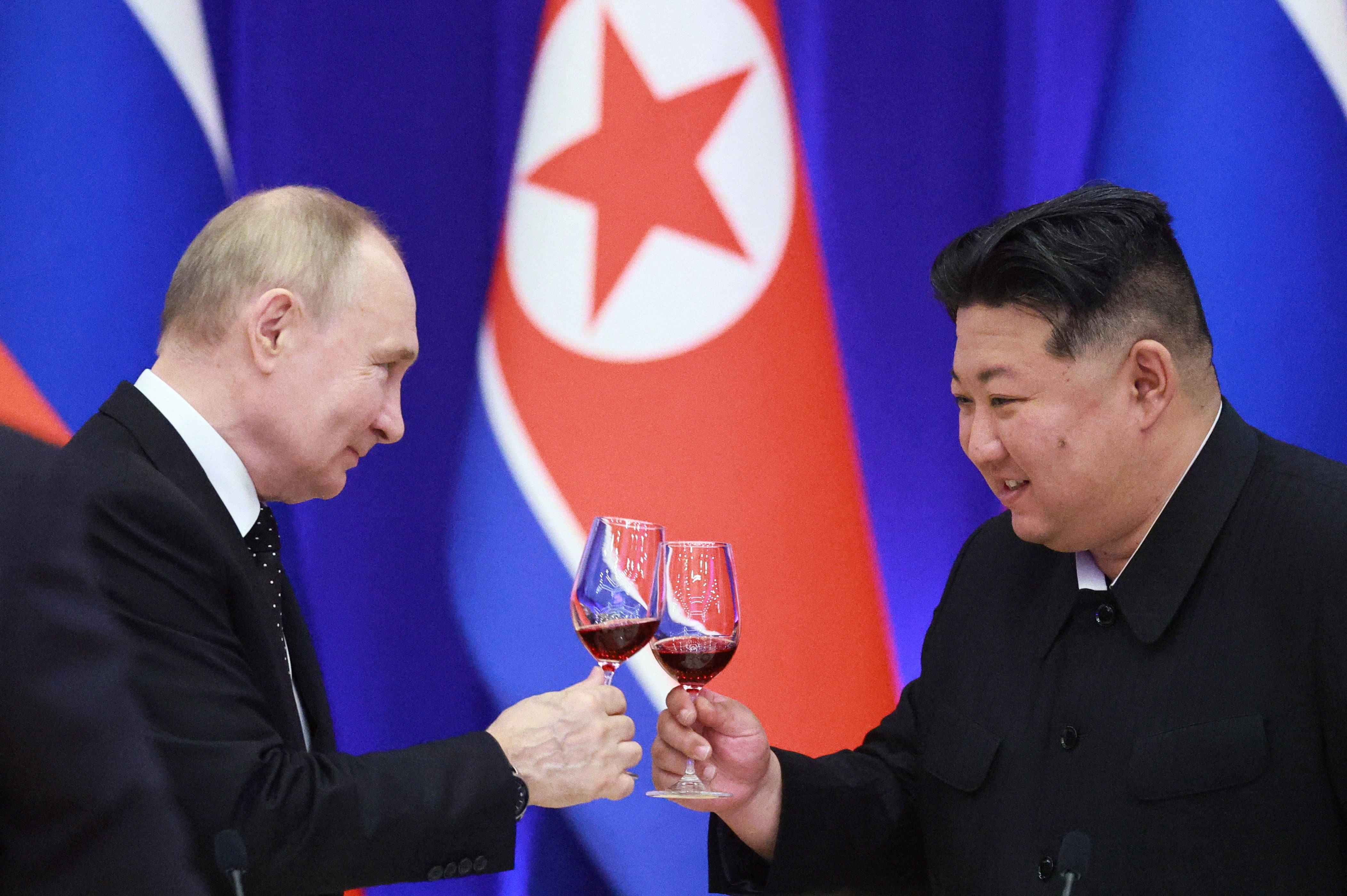
But money is likely among the lowest of the priorities on Mr Kim’s mind. Experts suggest the North Korean leader is more interested in gainning cutting-edge technology for its space and nuclear programmes and more firepower to threaten South Korea, its number one enemy.
“North Korea is very likely to ask for technology transfers in diverse areas, including the technologies relating to tactical nuclear weapons technologies related to their advancement of ICBM, also those regarding reconnaissance satellite and those regarding SSBNs [Ship, Submersible, Ballistic, Nuclear] as well,” South Korean defence minister Kim Yong Hyun said at the Pentagon on 30 October.
Russian technical assistance could be useful for various missile capabilities North Korea is still working to develop, including launch reliability, carrying realistic payloads, and accurately hitting targets, Leif-Eric Easley, a professor at Ewha University in Seoul told The Independent.
“Ukrainian lives, territory, and bargaining positions are at significant risk because North Korea is providing a bridging supply of ammunition to Putin’s forces while Russia ramps up military industrial production with dual-use imports from China,” he said.
Edward Howell, Chatham House Korea analyst, agreed, saying what “what Kim Jong-un wants the most is advanced missile technology” in a quick quid pro quo for the troop deployment.
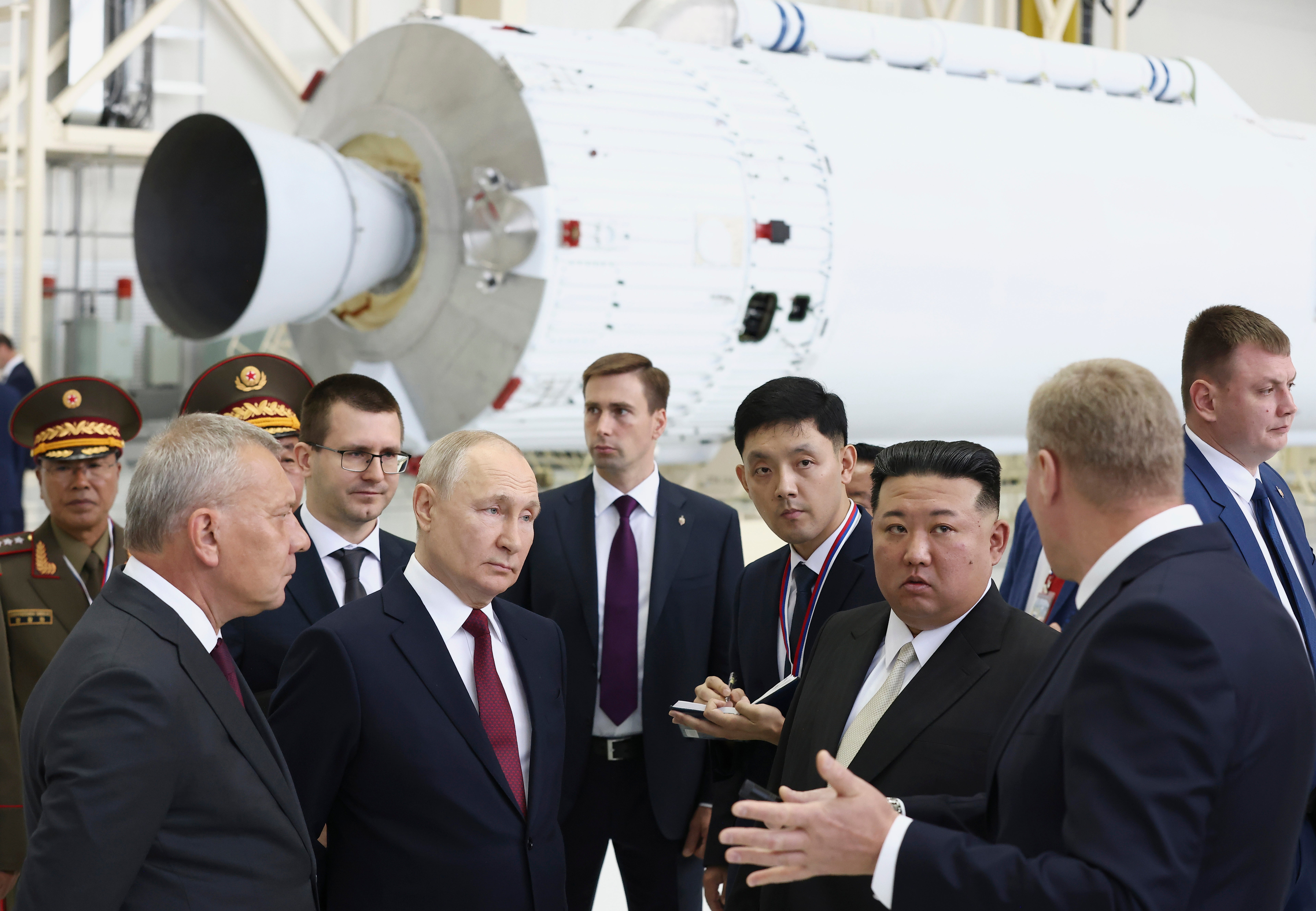
“We know North Korea wants to improve its satellite technology capability, conventional weapons capability and missile delivery systems,” he said at a webinar, adding North Korea could also get food assistance and financial support.
The two countries have a long history of military cooperation which goes back to the Soviet Era when the bloc supported North Korea’s foundation as a Communist state in 1948.
The Soviet Union helped the newly founded Pyongyang in building its nuclear research facility at Yongbyon in the 1960s, which became a key part of its six nuclear tests since 2006.
The exchange would mirror Russia’s existing partnership with Iran, in which Moscow has been providing Tehran with nuclear technology in exchange for weapons and military support for the war in Ukraine, according to a statement from the White House in September.
“We should not forget that supporting Russia in the war has been an opportunity for North Korea to revitalize its defence industry,” said Ms Lee.
She says more adverse implications of Russia’s advanced military technology transfer to North Korea will include Pyongyang further advancing North Korea’s Weapons of Mass Destruction (WMD) capabilities.
“Fighting side-by-side with a major power like Russia gives North Korea international ‘prestige’, perhaps even something like legitimacy to call itself an equal partner in a joint effort with Russia and Russia’s close friends to create an alternative global order,” she says.
“This ‘diplomatic space’ in turn gives North Korea more flexibility and options in dealing with the US. Namely, it will have implications for any future nuclear negotiations.”
More than 600,000 Russian soldiers are either dead or injured in the war, Nato secretary general Mark Rutte said. And the transnational induction of the North Korean soldiers is set to relieve the pressure on Moscow to draft more of its young generation of citizens.

Mr Kim is ready to sacrifice some of his own soldiers in the Russian battle as the vast frontlines of Ukraine could become a learning ground for modern warfare and Ms Lee says Mr Putin having Mr Kim’s back could encourage his “military adventurism”.
This is one of the reasons why South Korea has taken the lead in raising the urgency of the issue and even considering helping Ukraine with intelligence and military aid.
“Kim Jong-un is taking a big gamble,” says Ahn Chan-il, a former North Korean army first lieutenant. “If there are no large casualty numbers, he will get what he wants to some extent. But things will change a lot if many of his soldiers die in battle.”

